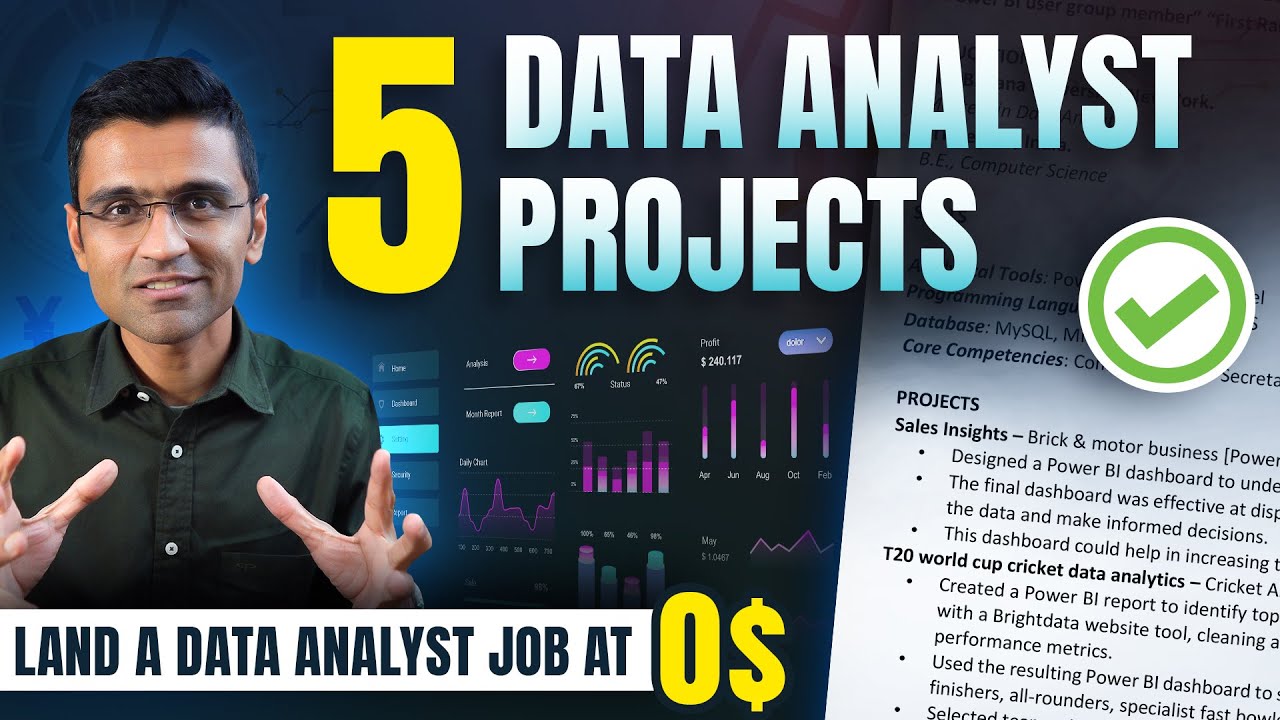How to tell if a career in Data Analytics is right for you...
Summary
TLDRIn this video, Tom, a senior data scientist, helps viewers decide if a career in data analytics is right for them. He outlines six key questions to ask, including whether you're curious, analytical, and enjoy problem-solving. He also emphasizes the importance of business strategy, a love for numbers, and effective communication. Tom discusses the booming job market, competitive salaries, and opportunities for growth in data analytics. He encourages viewers to assess their fit for the role and offers resources, including a free course and insights into a day in the life of a data analyst.
Takeaways
- 😀 Data analytics is one of the hottest career fields in 2022, with strong job demand and competitive salaries.
- 😀 Career change to data analytics requires passion and dedication, not just a desire for a higher salary or a fancy job title.
- 😀 Success in data analytics depends on your curiosity and willingness to work through uncertainty to uncover insights from data.
- 😀 Data analysts need to be comfortable with trial and error, and willing to make mistakes while finding solutions.
- 😀 A good data analyst has an analytical mindset and uses data-driven decision-making rather than relying solely on intuition.
- 😀 Problem-solving is at the core of data analytics—enjoying puzzles and challenges is a key trait of successful analysts.
- 😀 Data analysts need to understand and contribute to business strategy by translating data insights into actionable business decisions.
- 😀 While you don’t need to be a math genius, a comfort with numbers and statistics is essential for working with data.
- 😀 Strong presentation skills are necessary to communicate complex data insights clearly to non-experts and stakeholders.
- 😀 Data analysts can expect strong career growth, with an average U.S. salary of $75,000 and a growing job market driven by the increasing need for data literacy.
- 😀 A career in data analytics offers variety, as data-driven roles are available across industries such as healthcare, marketing, technology, and more.
Q & A
What is the role of a data analyst?
-A data analyst's role involves examining data to uncover insights that can help businesses make informed decisions. The job includes working with data to identify trends, patterns, and correlations, which can drive strategy and business growth.
What personal traits are important for a career in data analytics?
-Personal traits like curiosity, problem-solving skills, an analytical mindset, and a logical approach to work are important for success in data analytics. Being comfortable with uncertainty and failure is also essential.
How does one develop an analytical mindset for data analytics?
-An analytical mindset can be developed by practicing logical thinking, making data-driven decisions, and avoiding assumptions. Techniques like the 'Five Whys' or root cause analysis are helpful tools for improving problem-solving abilities.
Is a background in math necessary for becoming a data analyst?
-No, a strong math background is not required to become a data analyst. However, comfort with numbers and statistics is important, as data analytics often involves working with data sets and statistical analysis.
What is the job outlook for data analysts?
-The demand for data analysts is high and continues to grow as businesses increasingly rely on data to drive decisions. There is a shortage of experienced data professionals, making it an excellent time to enter the field.
What types of industries employ data analysts?
-Data analysts are needed across various industries, including healthcare, retail, finance, technology, marketing, and more. Opportunities are diverse, and data-driven decisions are applicable in virtually every sector.
What skills are crucial for presenting data findings effectively?
-Being able to present complex data in a clear and concise way is crucial. This includes translating technical data insights into understandable business terms and having confidence in presenting and discussing these insights with stakeholders.
What are the potential salary and growth prospects for data analysts?
-The average salary for a data analyst in the U.S. is around $75,000, with strong potential for salary growth as experience increases. The growing demand for data analysts contributes to the strong salary prospects in this field.
What are some common challenges faced by data analysts?
-Challenges include dealing with uncertainty, the need for persistence through trial and error, and often working with incomplete data. Data analysts must also bridge the gap between technical data analysis and real-world business strategy.
How does a data analyst impact business strategy?
-A data analyst plays a key role in shaping business strategy by providing data-driven insights. They help identify key trends and inform decision-making, enabling businesses to adjust strategies based on data rather than intuition alone.
Outlines

This section is available to paid users only. Please upgrade to access this part.
Upgrade NowMindmap

This section is available to paid users only. Please upgrade to access this part.
Upgrade NowKeywords

This section is available to paid users only. Please upgrade to access this part.
Upgrade NowHighlights

This section is available to paid users only. Please upgrade to access this part.
Upgrade NowTranscripts

This section is available to paid users only. Please upgrade to access this part.
Upgrade NowBrowse More Related Video

Introduction to Business Analytics (Updated Edition)

What is Descriptive Analytics? - Data Science Wednesday

Why You SHOULD NOT Study Mechanical Engineering

Top 5 Data Careers for 2025 (Salaries Included)

My Experience as MS Business Analytics & Information Management Student at Purdue | Michael Jonelis

5 Projects for a Data Analyst Job | All Materials Included
5.0 / 5 (0 votes)